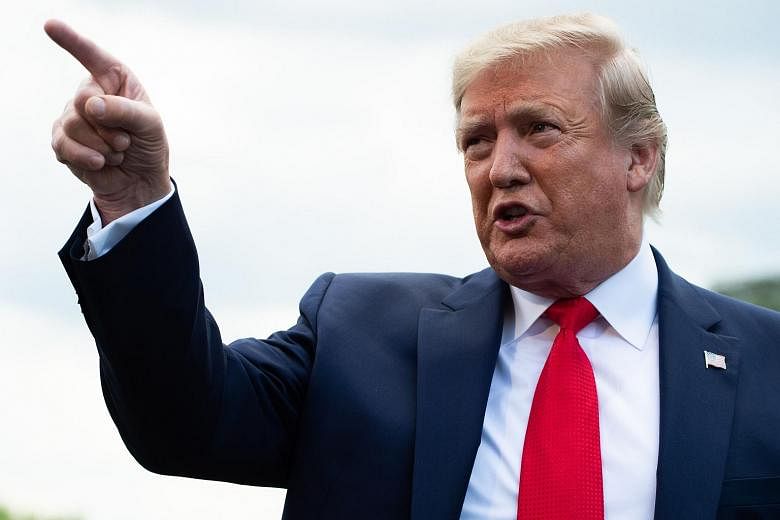WASHINGTON (NYTIMES) - US President Donald Trump vetoed a series of bipartisan measures Wednesday (July 24) that would have blocked the sale of billions of dollars of arms to Saudi Arabia and the United Arab Emirates.
Lawmakers from both parties sent an angry joint message to Mr Trump last month, saying that he could not go around Congress in his bid to help Persian Gulf allies prosecute their war in Yemen.
But in a veto message, Mr Trump said blocking the arms sales "would weaken America's global competitiveness and damage the important relationships we share with our allies and partners."
Mr Trump's veto - the third of his presidency and the second turning back congressional action condemning his administration's relationship with Saudi Arabia - had been expected. And although the resolutions passed with bipartisan majorities in both houses, lawmakers do not expect to have enough votes to override it.
The White House had set up the confrontation with Congress when it tried to bypass lawmakers by invoking emergency powers to allow the sale of US$8.1 billion (S$11.06 billion) worth of munitions in 22 pending transfers to Saudi Arabia and the United Arab Emirates.
Both countries are waging an air war in Yemen that Republicans and Democrats have assailed amid criticism from human rights organisations, which say that it has created a humanitarian crisis. Lawmakers had sought to end American support for the Saudi-led coalition that is fighting the Houthi rebels there.
But Mr Trump, pushed by Secretary of State Mike Pompeo, invoked an emergency provision in the Arms Export Control Act to allow the sales from military contractors in the United States to go forward. By declaring an emergency, the administration was able to blow through lawmakers' holds and the 30-day review period Congress normally receives to examine a sale.
The move - made just weeks after Congress passed bipartisan legislation that would have cut off military aid to Saudi Arabia in a censure for the killing of dissident journalist Jamal Khashoggi - incensed lawmakers on both sides of the aisle, who pushed through the measures aimed at stopping the sales.
"The president's veto sends a grim message that America's foreign policy is no longer rooted in our core values - namely a respect for human rights," Representative Eliot Engel, chairman of the Foreign Affairs Committee, said in a statement, "and that he views Congress not as a coequal branch of government, but an irritant to be avoided or ignored."
Members of Congress have accused the Trump administration of not doing enough to bring an end to the Yemen war. The bipartisan resolutions were designed as a rebuke to the president's foreign policy approach to the region.
In the veto message, Mr Trump insisted that his administration was concerned about the human tragedies playing out in Yemen even as he stressed the need to balance those concerns against diplomatic relations with allies.
"The United States is very concerned about the conflict's toll on innocent civilians and is working to bring the conflict in Yemen to an end," Mr Trump wrote. "But we cannot end it through ill-conceived and time-consuming resolutions that fail to address its root causes."

